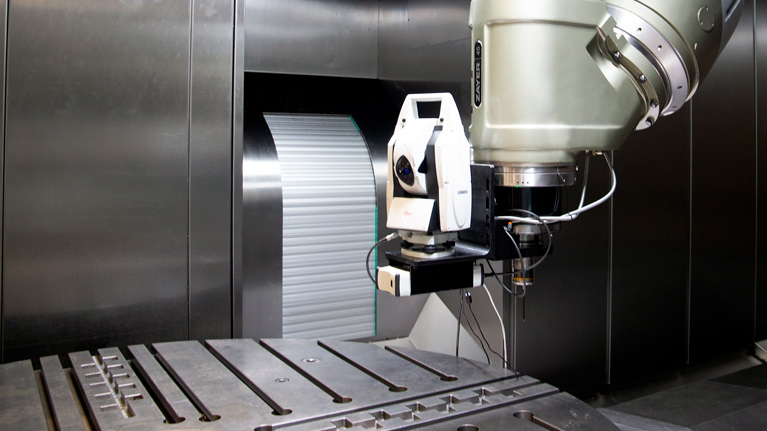Precision engineering, an indispensable element to develop machine tools
Improving machine tool accuracy is one of the key goals for manufacturers and users (development and utilisation of machines and production systems) to ensure that the specifications of the products to be manufactured are fully met. On-machine measuring and zero-defect manufacturing are two of the concepts currently being developed in the area of research to be eventually incorporated to machine tools and enhance precision even in the case of larger parts.

Precision engineering is geared towards developing and designing machines, equipment and products following a number of basic principles focused on prioritising precision over any other requirements.
Precision has commonly been associated with certain kinds of projects such as watches and even with countries like Switzerland, although it is a far more extensive concept. Generally speaking, an accurate system can be described as something that performs its tasks and functions free of errors in terms of the ultimate goal to be achieved and, should errors occur, they are always minor and quantifiable.
When addressing precision, there are three closely interrelated concepts that must be understood: exactness, repeatability and resolution. When described, people usually refer to a “storyteller”. Exactness is related to how true the story being told is, repeatability is the ability to always tell the same story and resolution addresses the details that explain the story.
For a system to be rated under the “precision” heading, it is obviously necessary to combine these three concepts. Reality has demonstrated, however, that many efforts made in the area of precision engineering have been focused on ensuring repeatability as, although exactness is the ultimate goal, it is important to know and understand the repeatability of components and the system as a whole because repeatability represents the lower limit of precision.
Since its creation, Tekniker has included precision engineering as one of its lines of specialisation and has used it to develop an extensive range of equipment and systems in the form of special measuring machines, scientific instruments, testing equipment, optoelectronic components, measuring standards, etc.
In addition to designing systems based on the above mentioned concepts, another key element of precision engineering is manufacturing processes that require production resources to be conceived and used as precision elements.
Market demand is currently focused on manufacturing larger elements, although accuracy requirements must be maintained or even increased, a fact that explains why machine tools must be capable of performing functions with higher degrees of precision.
There is a rising demand in the machine tool sector that has to be addressed by delivering new developments featuring precision engineering principles from the very beginning to achieve a high degree of repeatability and limit effects arising from thermal deformation, friction and clearance. Accurate drives incorporating systems to properly close loops must also be included.
Download the paper in full.
